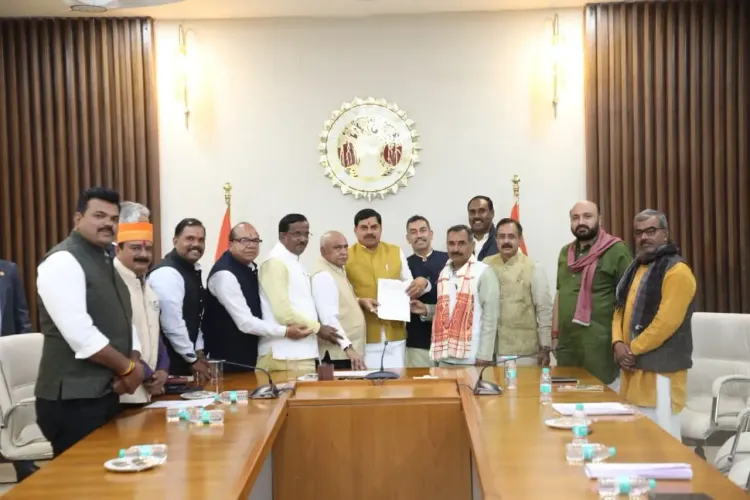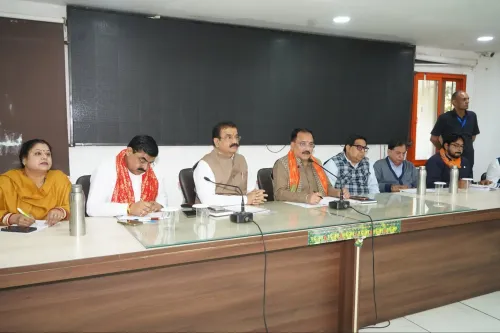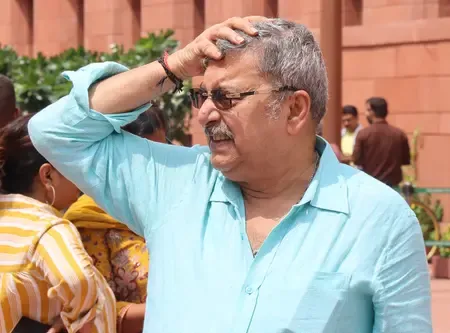Why Did MP CM Yadav Repeal the Land Pooling Policy Ahead of the BKS Protest?

Synopsis
Key Takeaways
- Madhya Pradesh government repeals land pooling policy.
- Decision made just before protests by farmers.
- BKS claims farmers were coerced into selling land.
- Policy reversal highlights government responsiveness to public concerns.
- Need for continued dialogue between farmers and the state.
Bhopal, Nov 17 (NationPress) The government of Madhya Pradesh has declared the repeal of the land pooling policy that was established to seize agricultural land for development projects related to the Simhastha Kumbh set to take place in 2028 in Ujjain.
This announcement was made just one day prior to a scheduled protest by the Bharatiya Kisan Sangh (BKS), which is affiliated with the Rashtriya Swayamsevak Sangh (RSS), intended to oppose the land pooling policy. Protesters claim that farmers are being compelled to sell their land to the government.
As per official reports, this decisive move followed an extensive meeting involving leaders from the Bharatiya Janata Party (BJP), including State President Hemant Khandelwal, representatives of BKS, and officials from the Urban Development Department, alongside the Ujjain district administration, held at the residence of Chief Minister Mohan Yadav in Bhopal.
The meeting, which lasted over two and a half hours, was presided over by Chief Minister Yadav.
After thorough discussions, it was resolved that the land pooling policy for Simhastha Kumbh would be annulled, and the Urban Development Department will issue a formal notification regarding this matter.
In a statement, the Madhya Pradesh BJP unit confirmed, "A meeting led by Chief Minister Mohan Yadav, attended by Madhya Pradesh BJP Chief Hemant Khandelwal, BKS members, and Urban Development Department officials, concluded with the decision to repeal the land pooling policy for Simhastha-2028."
Earlier on the same day, Bharat Singh, the convenor of Madhya Pradesh BKS, informed the media that over 2,000 farmers from Ujjain and surrounding districts in the Malwa-Nimar region are expected to participate in the protest to voice their concerns.
The BKS, linked to the RSS, has been opposing the state's land pooling policy since its initiation in January of this year, particularly in Ujjain, the home district of Chief Minister Yadav.
The core issue between the farmers and the state government revolves around land acquisition for the construction of permanent structures for the Simhastha-2028 event.
To acquire substantial agricultural land, the government under CM Yadav introduced the land pooling policy. Conversely, farmers have resisted the state's plans to develop permanent structures, which include Ashrams for the Simhastha Maha Kumbh in Ujjain.









